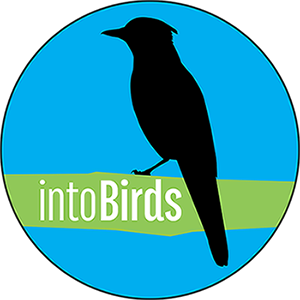IntoBirds Talks Perils of Rodenticide to Birds of Prey with Wildlife Advocates
Industry: Environment
Poisons Used to Kill Rodents Pose Fatal Threat to Birds of Prey and Other Wildlife
DANBURY, Conn. (PRUnderground) February 27th, 2019
IntoBirds, an online magazine, community, and educational resource for all things birds caught up with two wildlife education non-profit groups to talk about the fatal threat rodenticide (rat poison) poses to birds of prey and other wildlife.
‘Save Our Raptors, Don’t Use Rodenticide!’ profiles how rodenticide kills more than rodents. It kills the birds that prey on the rodents eating the poison, such as owls, hawks, eagles, falcons, and even turkey vultures.
Nearly every species of raptor is dying of rodenticide poisoning.
Raptors Are The Solution
Raptors Are The Solution (RATS), a non-profit in Berkeley, California, educates people about the ecological role of birds of prey in urban and wild areas, and the dangers they face from widespread use of rat poisons.
“Raptors and other predatory wildlife are our best natural, non-toxic form of rodent control,” says Lisa Owens Viani, director, and co-founder of RATS. “Preying on rodents is what they do, how they make their living and feed their families.”
She founded RATS with the idea of ‘let’s let these animals do their job.’
In other words, raptors are the solution.
But these birds slowly bleed to death from the inside after eating a rodent that was poisoned.
These birds were fulfilling their role as nature’s pest control and paid the ultimate price as victims of second-generation anticoagulant rodenticides.
Second-generation rodenticides most toxic to birds are sold over the counter and approved for use by the EPA.
These brightly colored boxes of poison are available in any grocery or hardware store and will remain on the market unless the EPA cancels their registration.
Rodenticide Poisoning A Growing Concern
Rodenticide inhibits the bird’s coagulation factor, they cannot clot their blood and then bleed out.
According to Christine Peyreigne, who runs Christine’s Critters Inc., a Wildlife Rehabilitation and Education non-profit in Weston, Connecticut, “Administering vitamin-K immediately for rodenticide poisoning gives a bird of prey a greater chance of recovery.”
“There’s no such thing as a hawk transfusion, and by the time the bird shows symptoms and someone brings it in for care, it’s often already too late.”
Intobirds profiles steps people can take to help stop the use of rodenticide, organizations to support and details non-toxic alternatives to using rat poison.
If you love birds, then please don’t use rodenticide to kill rodents in and around your home.
Read intoBirds’ article, ‘Save Our Raptors, Don’t Use Rodenticide!’ here.
People who enjoy bird watching, appreciate birds, bird photos or reading fascinating stories about birds should visit intoBirds.com, and follow intoBirds on Instagram, Facebook, Twitter, and YouTube.
About intoBirds
IntoBirds is an online magazine, community, and educational resource for all things birds and is based in Danbury, Connecticut, and Rosendale, New York.





